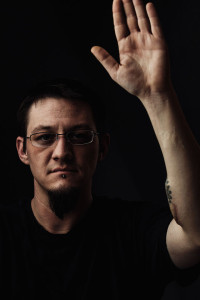What is your advice for start-ups in the healthcare sector?
In a recent interview for MISC Magazine’s article entitled “Hacking the Body to Hack the System: What Healthcare can Learn from a Biohacker”, my colleague Ryan O’Shea (who will also be a part of M.E.S.H with me) brought up the great point that the medical industry is focused on bringing people are considered (by an arbitrary definition) “sick” or “disabled” up to an equally arbitrary standard of “normal”, but the industry doesn’t show much of an interest in making already “healthy” humans better. We need to fix that, but it may happen naturally.
The truly disruptive innovations in the medical industry will likely focus on preventative medicine or regenerative technology, which will end up being one and the same. For example, prosthetic limbs and artificial organs are already amazing tools, but perfecting these devices will change everything. We’ll get to a point that artificial body parts are better than currently existing ones, meaning that prosthetics may have more strength or flexibility than typical limbs, or that a healthy human could elect to replace their perfectly functional heart with an artificial version that will eliminate the risk of a heart attack. In this way, regenerative technology designed to bring the “sick” up to “normal” will become preventative medicine that augments human capabilities and keeps some medical emergencies from arising in the first place.
This is what I see as the evolution of the medical field, but we won’t get there without the hard work and dedication of the healthcare start-ups of today. My advice to them is to use all of your resources. The X Prize and crowdsourcing prove that communities can team up to solve grand challenges, so don’t feel that you have to go it alone. While proprietary practices and intellectual capital is very important, especially with investors and in capitalistic systems, don’t forget that this is the business of helping people. If collaboration and open source work makes sense, do it. Break the rules. Don’t let the limits of others hold you back. Find people that share your vision and stick with them. Failure is just feedback; it’s data. Always use it to help you rather than giving up.
Jason Silva recently launched his #RedefineBillionare campaign to change the definition of “billionaire” from someone having a million dollars to someone positively impacting a billion people. These definitions are not mutually exclusive – in fact I think they often could go hand in hand. It would be wise for any company to strive for both, but I think we all know which one is more important. Don’t lose sight of that.
Quantify yourself: What’s your next big step to improve the human body?
The biggest next steps in improving the human body are definitely in quantification and feedback. An example of this is a a device called “Circadia” that my team is designing, the first early test version of which was implanted in my left forearm in 2013. It constantly took my temperature and sent this information to my phone.
Future versions of this would be much smaller, and be able to track much more data. Imagine a small implant constantly monitoring your heart rate, blood pressure, blood glucose levels, blood oxygen levels, calories burned, temperature, etc. This data could be logged in real time, shared with a doctor, or even used to automatically contact emergency services in the event of an problem.
By pairing with your phone and utilizing pattern recognition and AI, these devices could help you live a better life. They could identify the external conditions that cause stress (location, time of day, etc.) and recommend that you take a walk or use breathing techniques. They can suggest dietary changes or lifestyle changes, using all of this data to keep users happy and healthy. This is what we are working to build, and we welcome any of you to work on this as well and join us on this journey.
Thinking of tomorrow: Which subdermal implants should be the first to find their way under mainstream’s skin?
People are very squeamish about implants. Many people only get them as a last resort medical intervention, but that will soon changes. Wearable technology and cell phones are ubiquitous, so much so that some academics and philosophers already consider us a species of “cyborgs”. The logical next step is putting these wearables under the skin, turning them into a new category of devices sometimes referred to as “invisibles”.
The body mod community is already blazing trails in this regard. Tattoos and piercings have given way to shaped silicone implants and other augmentations. The first implanted technological devices seeing public adoption will likely be fashion and aesthetically motivated, such as Grindhouse’s Northstar implant which consists of a silicon shape embedded with LED lights that shine through the skin. Once these early adopters prove that the technology is safe, the public at large will begin electing to get some of the health meters. Before long, the public will be accepting of what we already see is the future – implementing technology into the human body to make us more connected, more capable, and more conscious. It’s an exciting time, and we’re thrilled to be a part of this coming wave of tech start-ups that will make this a reality.



Kommentare ( 0 )